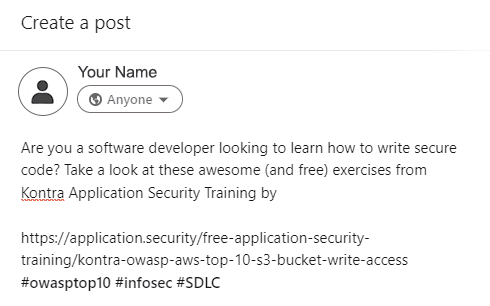What does productivity mean to you? For some, it might be about getting a lot of things done in a short amount of time. For others, it could be about maximizing output while minimizing effort. No matter how you define productivity, there’s no doubt that it’s important.
The average American working in an office is distracted or interrupted up to 13 times a day. It takes 23 minutes and 15 seconds to fully recover focus after a disturbance. Even if you are working from home, you may find yourself scrolling after a long meeting or answering every message in a group text.
Technology has fundamentally changed our thinking, making it easier than ever to focus on trivial tasks while ignoring more important ones. Whatever the cause, it is clear that Americans are far more distracted now than they were just a few years ago. As these patterns continue, it will be increasingly difficult for us to get things done or make meaningful connections in our lives. The real question is not why Americans are so distracted, but what we can do about it.
What it Means to be Productive
According to the Mirriam-Webster dictionary, being productive is defined as having the quality or power of producing, especially in abundance.
Statistics tell a clear story: The average American adult spends more time working than people in any other developed nation, with around 35 hours spent in the office or on work-related tasks each week. Additionally, nearly 60% of Americans check their email outside of work hours, meaning that their productivity extends well into evenings and weekends.
These numbers may be skewed somewhat by the fact that so many Americans are self-employed. Nevertheless, there is no denying this country values hard work and dedication more than most others. Even at the individual level, productivity pays off: those who consistently meet their goals tend to earn more money and secure better career opportunities than those who don’t prioritize productivity.
We have a habit of pushing ourselves relentlessly beyond our limits. This can manifest itself in a number of ways, including excessive work hours, stress and anxiety, feelings of burnout, chronic sleep deprivation, and even physical illness.
Rest is Essential
Resting is essential for anyone who wants to avoid burnout. When we are constantly pushing ourselves to our limits, our bodies and minds can start to break down. This is why taking regular breaks is so important when working hard or dealing with a lot of stress.
During periods of rest, our bodies can recover from the wear and tear that comes from all the effort we are putting in. Not only does this give us the energy we need to keep going, but it also helps us maintain a balanced and healthy state of mind. With rest, we can stay focused on our goals without worrying about burning out or crashing under strain.
More Rest = More Productivity
Despite their intentions, productivity-boosting regimes may actually be harmful to our well-being. At first glance, these regimes seem like an obvious path to enhanced productivity and efficiency: they involve regimented schedules, highly-structured work environments, and intense focus on achieving goals.
This rigid approach can actually backfire in a number of ways. For one thing, it can lead to burnout and stress, damaging physical and mental health in the long run. These regimes often do not take into account individual differences or changing circumstances — they assume that everyone operates in exactly the same way at all times. As a result, individuals who try to manage their time using a productivity-based system not suited to them may end up feeling frustrated and out of control of their lives. Ultimately, while productivity gains may initially be realized with these types of regimes, they often come at a steep cost to overall well-being.
5 Tips to Boost Productivity
While everyone has their own ways of digging deep and finding discipline to be productive, here are a few suggestions on how to help fine tune your productivity.
- Harness the power of your phone. Turning off your phone will eliminate a multitude of distractions, but it is unrealistic to do so if you are working remotely. Your phone most likely has a range of focus modes for silencing disruptions while behind the wheel, in dreamland and under a deadline. You can silence phone distractions by putting it on “do Not Disturb” for a scheduled period of time or on demand. Most inboxes will allow your emails to be delivered silently and you can change your settings to disable home screen notifications.
- Minimize your desktop & closing tabs. Too many windows being open can be a distraction and visual clutter can clutter the mind. Clean out and organize your desktop and close tabs that you haven’t used in days. Have clearly labeled folders to make finding files easier and avoid the urge to throw everything in just one folder as this will defeat the purpose of organizing. You can also use closing tabs as a way to check off things on your to do list.
- Filter your emails. There is a common misconception that urgent tasks are always the most important, and vice versa. However, as any busy professional will tell you, this is not always the case. In order to effectively manage time and energy, it is crucial to be able to distinguish between urgent and important tasks. Create folders to help prioritize emails to respond to right away, later in the day, later in the week and so forth.
- Group tasks. By grouping similar activities together, we can take full advantage of our mental state and heightened energy levels, allowing us to complete each task more quickly and efficiently than if we tackled them individually. Moreover, this practice also helps us avoid context switching and the associated costs in terms of time, effort, and energy. By focusing fully on each activity without interruptions in between, you will be able to get more done and also experience less stress as you approach the end of the day.
- Calendar blocking. Time blocking is a scheduling format that helps boost productivity by dividing your day into specific blocks of time. Using this approach, each block represents the time dedicated to completing a specific task or tasks. Time blocking helps establish a flow by allowing you to dedicate parts of your day to specific types of work, minimizes distractions since it sparks concentration on specific tasks, and creates a sense of control.
What are some methods you use to boost your productivity?


